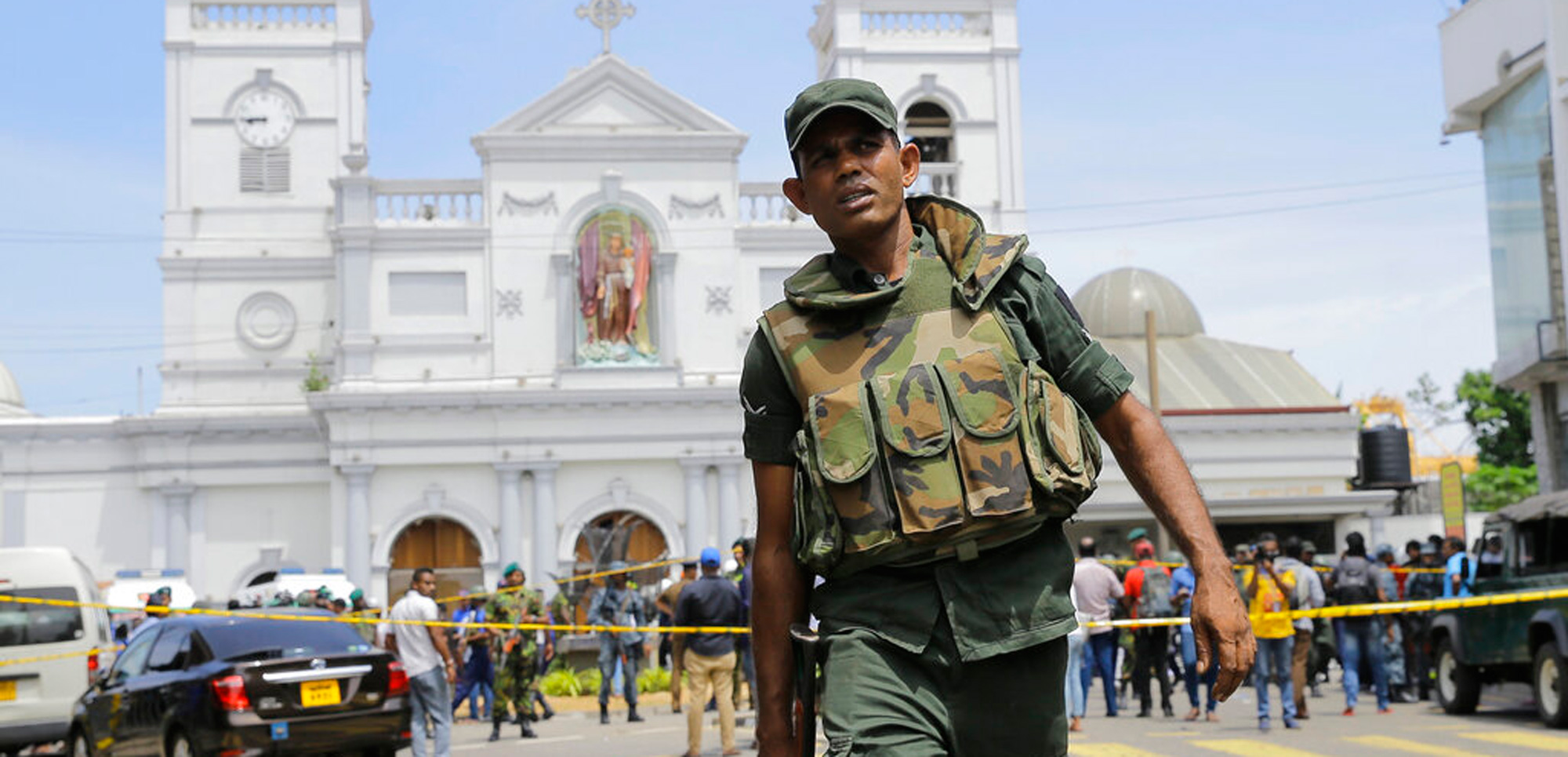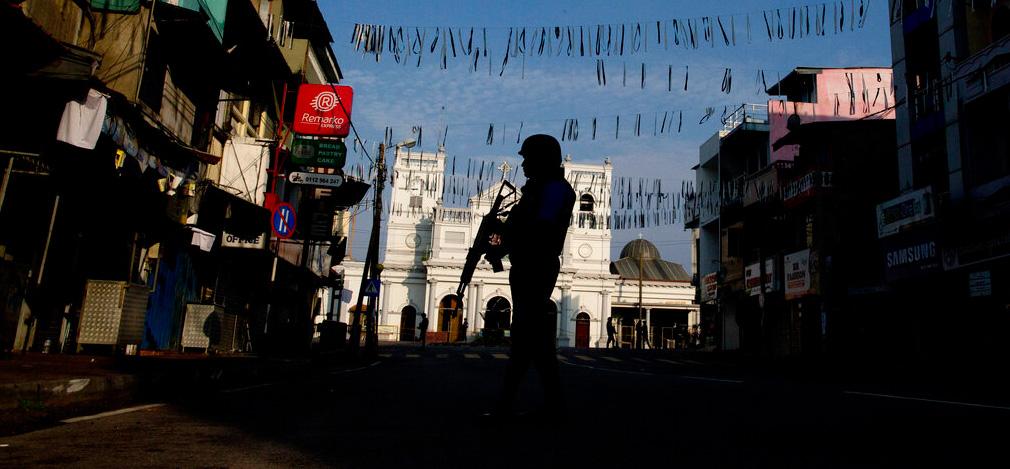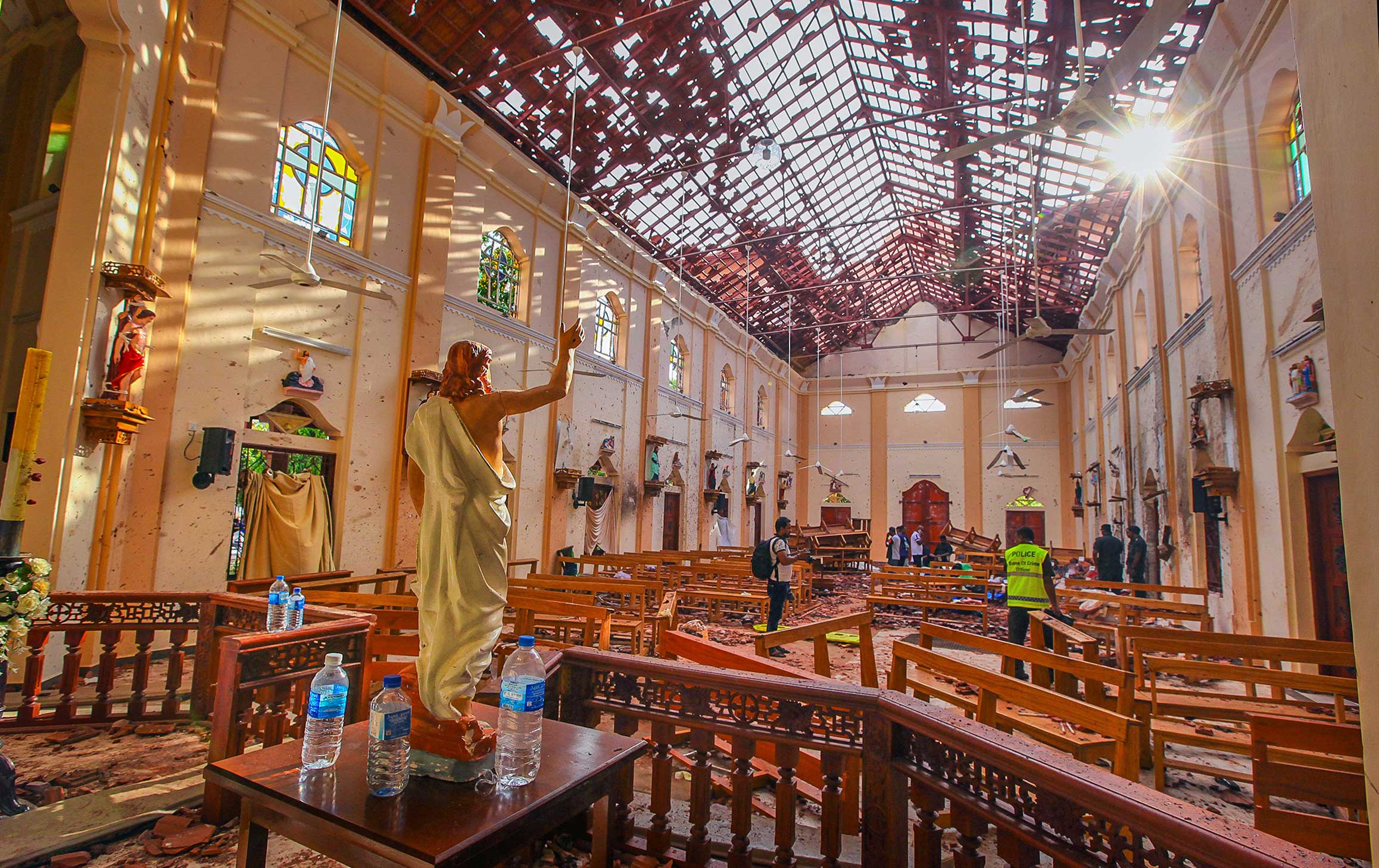The prime minister, Narendra Modi, after his re-election with a thumping majority, visited Sri Lanka on June 9, 2019 on his way back from the Maldives. Sri Lanka had then just begun healing after the deadly serial blasts across it on Easter Sunday that killed around 250 people. He was the first head of state to visit Sri Lanka after the incident; it was an expression of solidarity with the people of the island nation. Both Modi and the Sri Lankan president, Maithripala Sirisena, agreed that terrorism and radicalization are the biggest threats to world peace and have to be tackled collectively in the region. The manifestation of these threats is a big challenge in South Asia and all countries in the region need to learn lessons from such incidents to work out a joint strategy and proactively update the existing mechanism and structure to counter this menace. The threat is a great hindrance to growth, economic development and peace. This incident should be taken as a clarion call.
Sri Lanka has a blood-soaked history but the series of coordinated terrorist bombings on the Easter Sunday on churches and luxury hotels was unprecedented. This was the first major terrorist incident after the end of the civil war a decade ago. Even during three decades of civil war, never were so many people targeted on one day. Still recovering from the civil war that ended in 2009, Sri Lanka has plunged back into an era marked by fear, uncertainty and suspicion. The president, Sirisena, had made the bureaucracy accountable for lack of action in spite of actionable intelligence and fired the defence secretary and the police chief.
In spite of initial lapses, actions by the media, public and the Sri Lankan government were extraordinary and punitive measures taken. Curfew was imposed and a state of emergency was immediately declared which gave the government, police and the armed forces sweeping powers to undertake counter-terrorism measures. Under new emergency laws, the extremist groups that were involved, were banned. The government temporarily blocked major social media networks and messaging services — Facebook, Instagram, WhatsApp, Viber, Snapchat and YouTube — within hours of the attack to prevent misinformation, rumours and fake news. Churches were closed, Muslims were discouraged from attending Friday prayers and burqas were banned. Places of worship were closed, important places were put out of bounds and intensive searches were carried out in public places. The citizenry fully cooperated with the security agencies; there were no bandhs, no stone pelting, no protests and no candle light marches. There have been no television panel discussions trying to highlight lapses and failures of security forces or criticism of measures adopted after the incident. There have also been no unparliamentary parleys between the government and the Opposition parties.
While empathizing with Sri Lankans, there is a need for India to draw lessons. There should be political unity in tackling terror and it is important that the counter-terrorism narrative and strategy should not have political divides. For this it is important that the government should not take undue credit for measures adopted; that creates a sense of loss of political ground for other parties. It is the responsibility of the government to rise above politicking and take the lead in ensuring political synergy. All political parties should put national security above politics and should not unnecessarily find fault with every action of the government.
Growing inter-communal violence and the presence of the Islamic State in neighbouring Maldives, Bangladesh, Pakistan, Afghanistan and Sri Lanka indicate a lurking threat regarding the manifestation of which there should be no failure of anticipation. India has a protracted experience of terrorism and sectarian violence, but, fortunately, we have not been a target of jihadi violence. Jihadi terrorism is a global threat and when terror networks are international, acts of terror in one country require concerted action and coordination to prevent their occurrence. Coordinated attacks of this level of sophistication require funding and logistics networks. There is a need to identify these networks and regularly monitor them, because following these leads invariably results in a trove of valuable intelligence that can thwart nefarious designs for such attacks. There is a need for continuous reorientation, keeping in view technological developments and the changing modus operandi of terror groups to ensure that we do not get caught in the perpetual problem of fighting the previous war.
Political tussles in Sri Lanka had led to changes in the national security council over which the government was bitterly divided. This had led to problems in sharing and the lateral flow of information. Probably because of this, lower-level officials were reluctant to take action unilaterally. It is important to have a balanced national security apparatus. In our case, our military, one of the main anti-terror forces, has definitely not been kept in the loop of the anti-terror structure. There are no institutional mechanisms for the regular interaction of the cabinet committee of security with the national security apparatus and the chief of staff committee. In fact, the chief of staff committee does not form part of the security apparatus and interaction is only need-based.
Threads of all anti-terrorist operations, arrests and seizures of weapons, equipment, explosives and incriminating documents should be followed up for the synthesis of broader links of networks. It is necessary to monitor the contours of international jihadi violence. The Islamic State may have lost ground but it is definitely alive and poses a potential threat in South Asia. It is reported that after their defeat in conventional war, the experienced fighters and funding agencies of the IS have dispersed to other parts of the globe including South Asia; so their international connections need to be monitored.
Intelligence agencies play a significant role in the security of a country. The role of intelligence capabilities in domestic and foreign security policies has always remained opaque. The Research and Analysis Wing and Intelligence Bureau are creations of the executive branch, have no legal foundation and are not subject to scrutiny by Parliament. We do not have any legislation governing how the intelligence services should and could act. Many strategic thinkers have called for major reforms, revealing the endemic staff shortages afflicting these agencies.
Every terror attack has exposed the deficiencies of our intelligence mechanism: it failed to provide credible and actionable inputs regarding the attacks at Pathankot, Uri, Baramulla, Sukma and Nagrota. The quality of technical intelligence has improved considerably but our human intelligence needs improvement.
Our intelligence set-up continues to be dominated by deputationists; there is a lack of a dedicated intelligence cadre. The practice of staffing intelligence agencies with police officers has resulted in a disregard in these agencies for language experts, scientists, information technology professionals and cyber specialists, which results in turn in substandard intelligence. We have multiple agencies competing for turf and there is a lack of coordination. Career intelligence officers remain a dream and human intelligence remains a weak link.
A revamp of the intelligence set-up with dedicated cadre and better coordination is the need of the hour. There has to be greater coordination for seamless acquisition, processing and dissemination of intelligence. It is important to have regular lateral flow of inputs at all levels after synthesis. There is a tendency in intelligence organizations to routinely pass inputs about impending threats periodically or before important events. This regular flow of generic inputs upsets complacency in ground troops who have to act on each of these inputs. Intelligence agencies are constrained and restricted by inadequate manpower and essential equipment.
The setting up of the National Technical Research Organisation has improved our capability of intelligence support and its inputs are of immense value. There is a need to enhance its capability and ensure proper staffing.
Multi-agency centres created at Central and state levels for coordination and fusion of intelligence are ineffective and do not meet regularly even in normal times. Every state has its own intelligence set-up but this is a weak link. Experience shows that inputs from state agencies are minimal and there is an inadequacy of human intelligence.
Internal security reforms after 26/11 produced a National Counter Terrorism Centre and the National Intelligence Grid, a national, computerized, information-sharing network. The NCTC remains embroiled in the quagmire of Centre-state relations and NatGrid has not taken off. It is important to focus on the NCTC and the NatGrid so as to make them fully operational. It is crucial that these bodies do not remain ‘only police establishments’ but have a balanced composition of experts from various fields, including the armed forces. The armed forces remain an important instrument in our anti-terror mechanism but, sadly, they do not form part of anti-terror structure at strategic level in the Centre and states. It is important to incorporate and integrate them as is being done in most countries worldwide.
The shutting down of social media in Sri Lanka to stop the spread of misinformation leading to the possibility of more violence has advantages. But social media can also be used to combat disinformation and rumours and can provide avenues for contact, which generates confidence. It must be remembered that fake inputs, rumours and falsehoods on social media have been instrumental in fuelling ethnic violence in many countries including India. Close monitoring on the activities of social media should be done, for which civil groups, NGOs and freelance experts should be exploited.
Actions after the suicide bombing in Sri Lanka have been praiseworthy and there is a need to draw lessons. The response of the Sri Lankan government and the public in spite of the inconveniences caused, and the political parties in spite of the divide have been praiseworthy and, in fact, unifying. Strategic affairs experts and political parties have not been critical of the severe measures adopted by the government. An incident of this magnitude in the immediate neighbourhood should be a warning to India to gear up to the lurking threat and hone its intelligence set-up, anti-terror outfits and national security apparatus so as to be prepared for any unforeseen eventualities.













